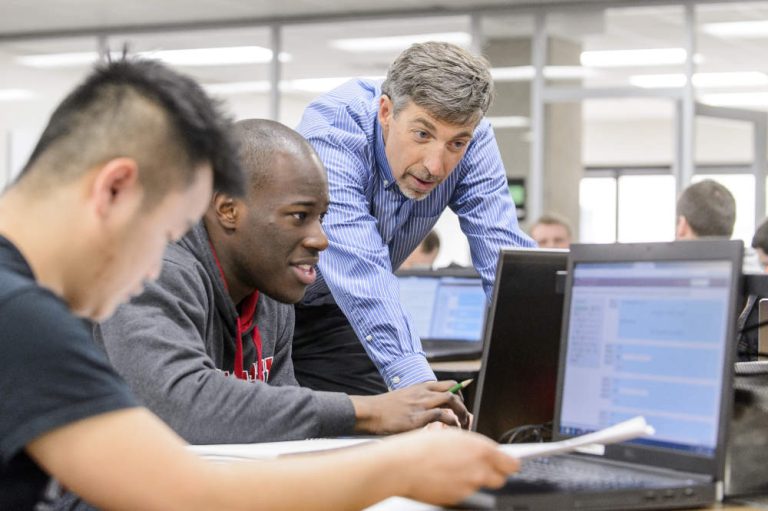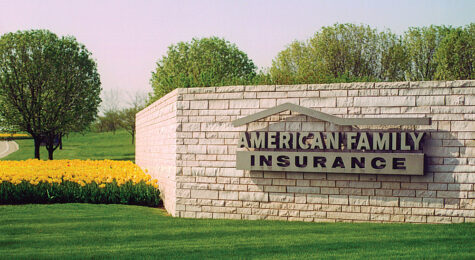Madison, WI Colleges, Collaboration Create Highly Educated Workforce
With an education workforce and excellent training programs, Madison Region businesses have an excellent source of workers.

The Madison Region’s diverse, innovative and sophisticated economy is driven by a highly skilled, highly educated workforce, and a regional commitment to promoting partnership among business, academia and government.
Home to two of Wisconsin system campuses, in Madison and Whitewater, and other top-notch universities and colleges, the region ranks among the nation’s most educated population. More than 32 percent of adults age 25 and over have a bachelor’s degree or higher, and more than 60 percent have an associate’s degree or some level
of college.
One major driver of job training and placement has been the Workforce Development Board of South Central Wisconsin (WDBSCW). The board works with partner organizations to provide career services through a network of three job centers and 17 WorkSmart Access points.
“We recognize that global competition and technological advancements have changed the economic landscape, and that the workforce development system must keep pace by ensuring that strategies are both employer-focused and demand-driven. That’s why we continue to build and maintain strong relationships with businesses in our region,” says Pat Schramm, WDBSCW Executive Director. “This allows us to understand the ever-changing demands and respond with workforce solutions that result in economic growth.”
A Bridge to College
One example is the board’s Middle College Program, a bridge-to-college program for high school students at no cost to the student or to the local school district.
The program is a collaborative effort between the board and Madison College. Many students spend their summers working with manufacturing and health-care companies as part of a paid experience component of the program. More than 30 companies participated in 2013, including ABS Global, Digi-Star, John Deere, Penda Corp and UW Health.
The board also works with the Wisconsin NECA-IBEW Electrical Apprenticeship and Training Program to increase interest in skilled trade careers.
The Urban League of Greater Madison offers a host of work-training partnerships with regional businesses. The Urban League is one of the Madison Region’s largest community-based providers of career development training and job placement assistance for unemployed and underemployed adults.
Through its Foundations Work Readiness Academy, the Urban League helps prospective employees develop core competencies and behaviors needed to obtain and retain a job. One aspect of the program features the assignment of a mentor for each enrollee in the program.
The Urban League’s health-care and customer service training programs prepare hundreds of the region’s residents for work. A host of companies partner with the league in hiring these well-trained individuals, including such major employers as St. Mary’s Hospital and Target.
The Urban League’s new Center for Economic Development & Workforce Training has been designated as a WorkSmart Access Point, which allows the League to help job seekers prepare and apply for jobs, apply for work supports, and learn about career training opportunities.
Collaboration Key to Success
“I think what makes the Madison Region special is the level of collaboration in the community,” says Deirdre Hargrove-Krieghoff, vice president of workforce development for the Urban League. “At the Urban League, we are continually looking at our industries in the community to ensure we stay ahead of the curve in meeting their employment needs.”
Blackhawk Technical College, which has campuses in Janesville and Monroe, has been highly successful in tailoring programs to meet the need of employers in the region.
The college also provides technical assistance and consulting services to businesses. The workforce training group in the college’s division of Business and Community Development has a number of programs to help businesses such as leadership development and business communications.
“Any topic we teach at the college we can take to a local business,” says Doug Holmes, manager of training and consulting services for Blackhawk.
The college has recently assisted SSI Technologies and Beloit Health Systems in leadership and team-building programs, and assisted Hufcor, a manufacturer of door partitions, in a series of design seminars. Blackhawk has also helped such companies as United Alloy and Franklin Morse Engine with workforce development needs.
Beloit College, a liberal arts college in Rock County, offers excellent internship programs that have resulted in students finding employment in the region and regional employers finding a great source for talented employees.
“Internships can lead to employment opportunities and often help our students determine a career path,” says Jessica Fox-Wilson, director of career development for the college.



